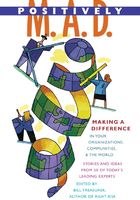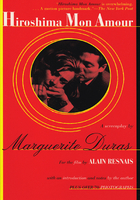I am an old woman now, and things are very different to what they were in my youth. Then we, who travelled, travelled in coaches, carrying six inside, and making a two days' journey out of what people now go over in a couple of hours with a whizz and a flash, and a screaming whistle, enough to deafen one. Then letters came in but three times a week: indeed, in some places in Scotland where I have stayed when I was a girl, the post came in but once a month;-but letters were letters then; and we made great prizes of them, and read them and studied them like books. Now the post comes rattling in twice a day, bringing short jerky notes, some without beginning or end, but just a little sharp sentence, which well-bred folks would think too abrupt to be spoken. Well, well! they may all be improvements,-I dare say they are; but you will never meet with a Lady Ludlow in these days.
I will try and tell you about her. It is no story: it has, as I said, neither beginning, middle, nor end.
My father was a poor clergyman with a large family. My mother was always said to have good blood in her veins; and when she wanted to maintain her position with the people she was thrown among,-principally rich democratic manufacturers, all for liberty and the French Revolution,-she would put on a pair of ruffles, trimmed with real old English point, very much darned to be sure,-but which could not be bought new for love or money, as the art of making it was lost years before. These ruffles showed, as she said, that her ancestors had been Somebodies, when the grandfathers of the rich folk, who now looked down upon her, had been Nobodies,-if, indeed, they had any grandfathers at all. I don't know whether any one out of our own family ever noticed these ruffles,-but we were all taught as children to feel rather proud when my mother put them on, and to hold up our heads as became the descendants of the lady who had first possessed the lace. Not but what my dear father often told us that pride was a great sin; we were never allowed to be proud of anything but my mother's ruffles: and she was so innocently happy when she put them on,-often, poor dear creature, to a very worn and threadbare gown,-that I still think, even after all my experience of life, they were a blessing to the family. You will think that I am wandering away from my Lady Ludlow. Not at all. The Lady who had owned the lace, Ursula Hanbury, was a common ancestress of both my mother and my Lady Ludlow. And so it fell out, that when my poor father died, and my mother was sorely pressed to know what to do with her nine children, and looked far and wide for signs of willingness to help, Lady Ludlow sent her a letter, proffering aid and assistance. I see that letter now: a large sheet of thick yellow paper, with a straight broad margin left on the left-hand side of the delicate Italian writing,-writing which contained far more in the same space of paper than all the sloping, or masculine hand-writings of the present day. It was sealed with a coat of arms,-a lozenge,-for Lady Ludlow was a widow. My mother made us notice the motto, "Foy et Loy," and told us where to look for the quarterings of the Hanbury arms before she opened the letter. Indeed, I think she was rather afraid of what the contents might be; for, as I have said, in her anxious love for her fatherless children, she had written to many people upon whom, to tell truly, she had but little claim; and their cold, hard answers had many a time made her cry, when she thought none of us were looking. I do not even know if she had ever seen Lady Ludlow: all I knew of her was that she was a very grand lady, whose grandmother had been half-sister to my mother's great-grandmother; but of her character and circumstances I had heard nothing, and I doubt if my mother was acquainted with them.
I looked over my mother's shoulder to read the letter; it began, "Dear Cousin Margaret Dawson," and I think I felt hopeful from the moment I saw those words. She went on to say,-stay, I think I can remember the very words:
'DEAR COUSIN MARGARET DAWSON,-I have been much grieved to hear of the loss you have sustained in the death of so good a husband, and so excellent a clergyman as I have always heard that my late cousin Richard was esteemed to be.'
"There!" said my mother, laying her finger on the passage, "read that aloud to the little ones. Let them hear how their father's good report travelled far and wide, and how well he is spoken of by one whom he never saw. COUSIN Richard, how prettily her ladyship writes! Go on, Margaret!" She wiped her eyes as she spoke: and laid her fingers on her lips, to still my little sister, Cecily, who, not understanding anything about the important letter, was beginning to talk and make a noise.
'You say you are left with nine children. I too should have had nine, if mine had all lived. I have none left but Rudolph, the present Lord Ludlow. He is married, and lives, for the most part, in London. But I entertain six young gentlewomen at my house at Connington, who are to me as daughters-save that, perhaps, I restrict them in certain indulgences in dress and diet that might be befitting in young ladies of a higher rank, and of more probable wealth. These young persons-all of condition, though out of means-are my constant companions, and I strive to do my duty as a Christian lady towards them. One of these young gentlewomen died (at her own home, whither she had gone upon a visit) last May. Will you do me the favour to allow your eldest daughter to supply her place in my household? She is, as I make out, about sixteen years of age. She will find companions here who are but a little older than herself. I dress my young friends myself, and make each of them a small allowance for pocket-money. They have but few opportunities for matrimony, as Connington is far removed from any town. The clergyman is a deaf old widower; my agent is married; and as for the neighbouring farmers, they are, of course, below the notice of the young gentlewomen under my protection. Still, if any young woman wishes to marry, and has conducted herself to my satisfaction, I give her a wedding dinner, her clothes, and her house-linen. And such as remain with me to my death, will find a small competency provided for them in my will. I reserve to myself the option of paying their travelling expenses,-disliking gadding women, on the one hand; on the other, not wishing by too long absence from the family home to weaken natural ties.
'If my proposal pleases you and your daughter-or rather, if it pleases you, for I trust your daughter has been too well brought up to have a will in opposition to yours-let me know, dear cousin Margaret Dawson, and I will make arrangements for meeting the young gentlewoman at Cavistock, which is the nearest point to which the coach will bring her.'
My mother dropped the letter, and sat silent.
"I shall not know what to do without you, Margaret."
A moment before, like a young untried girl as I was, I had been pleased at the notion of seeing a new place, and leading a new life. But now,-my mother's look of sorrow, and the children's cry of remonstrance: "Mother; I won't go," I said.
"Nay! but you had better," replied she, shaking her head. "Lady Ludlow has much power. She can help your brothers. It will not do to slight her offer."
So we accepted it, after much consultation. We were rewarded,-or so we thought,-for, afterwards, when I came to know Lady Ludlow, I saw that she would have done her duty by us, as helpless relations, however we might have rejected her kindness,-by a presentation to Christ's Hospital for one of my brothers.
And this was how I came to know my Lady Ludlow.
I remember well the afternoon of my arrival at Hanbury Court. Her ladyship had sent to meet me at the nearest post-town at which the mail-coach stopped. There was an old groom inquiring for me, the ostler said, if my name was Dawson-from Hanbury Court, he believed. I felt it rather formidable; and first began to understand what was meant by going among strangers, when I lost sight of the guard to whom my mother had intrusted me. I was perched up in a high gig with a hood to it, such as in those days was called a chair, and my companion was driving deliberately through the most pastoral country I had ever yet seen. By-and-by we ascended a long hill, and the man got out and walked at the horse's head. I should have liked to walk, too, very much indeed; but I did not know how far I might do it; and, in fact, I dared not speak to ask to be helped down the deep steps of the gig. We were at last at the top,-on a long, breezy, sweeping, unenclosed piece of ground, called, as I afterwards learnt, a Chase. The groom stopped, breathed, patted his horse, and then mounted again to my side.
"Are we near Hanbury Court?" I asked.
"Near! Why, Miss! we've a matter of ten mile yet to go."
Once launched into conversation, we went on pretty glibly. I fancy he had been afraid of beginning to speak to me, just as I was to him; but he got over his shyness with me sooner than I did mine with him. I let him choose the subjects of conversation, although very often I could not understand the points of interest in them: for instance, he talked for more than a quarter of an hour of a famous race which a certain dog-fox had given him, above thirty years before; and spoke of all the covers and turns just as if I knew them as well as he did; and all the time I was wondering what kind of an animal a dog-fox might be.
After we loft the Chase, the road grew worse. No one in these days, who has not seen the byroads of fifty years ago, can imagine what they were. We had to quarter, as Randal called it, nearly all the way along the deep-rutted, miry lanes; and the tremendous jolts I occasionally met with made my seat in the gig so unsteady that I could not look about me at all, I was so much occupied in holding on. The road was too muddy for me to walk without dirtying myself more than I liked to do, just before my first sight of my Lady Ludlow. But by-and-by, when we came to the fields in which the lane ended, I begged Randal to help me down, as I saw that I could pick my steps among the pasture grass without making myself unfit to be seen; and Randal, out of pity for his steaming horse, wearied with the hard struggle through the mud, thanked me kindly, and helped me down with a springing jump.
The pastures fell gradually down to the lower land, shut in on either side by rows of high elms, as if there had been a wide grand avenue here in former times. Down the grassy gorge we went, seeing the sunset sky at the end of the shadowed descent. Suddenly we came to a long flight of steps.
"If you'll run down there, Miss, I'll go round and meet you, and then you'd better mount again, for my lady will like to see you drive up to the house."
"Are we near the house?" said I, suddenly checked by the idea.
"Down there, Miss," replied he, pointing with his whip to certain stacks of twisted chimneys rising out of a group of trees, in deep shadow against the crimson light, and which lay just beyond a great square lawn at the base of the steep slope of a hundred yards, on the edge of which we stood.
I went down the steps quietly enough. I met Randal and the gig at the bottom; and, falling into a side road to the left, we drove sedately round, through the gateway, and into the great court in front of the house.
The road by which we had come lay right at the back.
Hanbury Court is a vast red-trick house-at least, it is cased in part with red bricks; and the gate-house and walls about the place are of brick,-with stone facings at every corner, and door, and window, such as you see at Hampton Court. At the back are the gables, and arched doorways, and stone mullions, which show (so Lady Ludlow used to tell us) that it was once a priory. There was a prior's parlour, I know-only we called it Mrs. Medlicott's room; and there was a tithe-barn as big as a church, and rows of fish-ponds, all got ready for the monks' fasting-days in old time. But all this I did not see till afterwards. I hardly noticed, this first night, the great Virginian Creeper (said to have been the first planted in England by one of my lady's ancestors) that half covered the front of the house. As I had been unwilling to leave the guard of the coach, so did I now feel unwilling to leave Randal, a known friend of three hours. But there was no help for it; in I must go; past the grand-looking old gentleman holding the door open for me, on into the great hall on the right hand, into which the sun's last rays were sending in glorious red light,-the gentleman was now walking before me,-up a step on to the dais, as I afterwards learned that it was called,-then again to the left, through a series of sitting-rooms, opening one out of another, and all of them looking into a stately garden, glowing, even in the twilight, with the bloom of flowers. We went up four steps out of the last of these rooms, and then my guide lifted up a heavy silk curtain and I was in the presence of my Lady Ludlow.
She was very small of stature, and very upright. She wore a great lace cap, nearly half her own height, I should think, that went round her head (caps which tied under the chin, and which we called "mobs," came in later, and my lady held them in great contempt, saying people might as well come down in their nightcaps). In front of my lady's cap was a great bow of white satin ribbon; and a broad band of the same ribbon was tied tight round her head, and served to keep the cap straight. She had a fine Indian muslin shawl folded over her shoulders and across her chest, and an apron of the same; a black silk mode gown, made with short sleeves and ruffles, and with the tail thereof pulled through the pocket-hole, so as to shorten it to a useful length: beneath it she wore, as I could plainly see, a quilted lavender satin petticoat. Her hair was snowy white, but I hardly saw it, it was so covered with her cap: her skin, even at her age, was waxen in texture and tint; her eyes were large and dark blue, and must have been her great beauty when she was young, for there was nothing particular, as far as I can remember, either in mouth or nose. She had a great gold-headed stick by her chair; but I think it was more as a mark of state and dignity than for use; for she had as light and brisk a step when she chose as any girl of fifteen, and, in her private early walk of meditation in the mornings, would go as swiftly from garden alley to garden alley as any one of us.
She was standing up when I went in. I dropped my curtsey at the door, which my mother had always taught me as a part of good manners, and went up instinctively to my lady. She did not put out her hand, but raised herself a little on tiptoe, and kissed me on both cheeks.
"You are cold, my child. You shall have a dish of tea with me." She rang a little hand-bell on the table by her, and her waiting-maid came in from a small anteroom; and, as if all had been prepared, and was awaiting my arrival, brought with her a small china service with tea ready made, and a plate of delicately-cut bread and butter, every morsel of which I could have eaten, and been none the better for it, so hungry was I after my long ride. The waiting-maid took off my cloak, and I sat down, sorely alarmed at the silence, the hushed foot-falls of the subdued maiden over the thick carpet, and the soft voice and clear pronunciation of my Lady Ludlow. My teaspoon fell against my cup with a sharp noise, that seemed so out of place and season that I blushed deeply. My lady caught my eye with hers,-both keen and sweet were those dark-blue eyes of her ladyship's:-
"Your hands are very cold, my dear; take off those gloves" (I wore thick serviceable doeskin, and had been too shy to take them off unbidden), "and let me try and warm them-the evenings are very chilly." And she held my great red hands in hers,-soft, warm, white, ring-laden. Looking at last a little wistfully into my face, she said-"Poor child! And you're the eldest of nine! I had a daughter who would have been just your age; but I cannot fancy her the eldest of nine." Then came a pause of silence; and then she rang her bell, and desired her waiting-maid, Adams, to show me to my room.
It was so small that I think it must have been a cell. The walls were whitewashed stone; the bed was of white dimity. There was a small piece of red staircarpet on each side of the bed, and two chairs. In a closet adjoining were my washstand and toilet-table. There was a text of Scripture painted on the wall right opposite to my bed; and below hung a print, common enough in those days, of King George and Queen Charlotte, with all their numerous children, down to the little Princess Amelia in a go-cart. On each side hung a small portrait, also engraved: on the left, it was Louis the Sixteenth; on the other, Marie-Antoinette. On the chimney-piece there was a tinder-box and a Prayer-book. I do not remember anything else in the room. Indeed, in those days people did not dream of writing-tables, and inkstands, and portfolios, and easy chairs, and what not. We were taught to go into our bedrooms for the purposes of dressing, and sleeping, and praying.
Presently I was summoned to supper. I followed the young lady who had been sent to call me, down the wide shallow stairs, into the great hall, through which I had first passed on my way to my Lady Ludlow's room. There were four other young gentlewomen, all standing, and all silent, who curtsied to me when I first came in. They were dressed in a kind of uniform: muslin caps bound round their heads with blue ribbons, plain muslin handkerchiefs, lawn aprons, and drab-coloured stuff gowns. They were all gathered together at a little distance from the table, on which were placed a couple of cold chickens, a salad, and a fruit tart. On the dais there was a smaller round table, on which stood a silver jug filled with milk, and a small roll. Near that was set a carved chair, with a countess's coronet surmounting the back of it. I thought that some one might have spoken to me; but they were shy, and I was shy; or else there was some other reason; but, indeed, almost the minute after I had come into the hall by the door at the lower hand, her ladyship entered by the door opening upon the dais; whereupon we all curtsied very low; I because I saw the others do it. She stood, and looked at us for a moment.
"Young gentlewomen," said she, "make Margaret Dawson welcome among you;" and they treated me with the kind politeness due to a stranger, but still without any talking beyond what was required for the purposes of the meal. After it was over, and grace was said by one of our party, my lady rang her hand-bell, and the servants came in and cleared away the supper things: then they brought in a portable reading-desk, which was placed on the dais, and, the whole household trooping in, my lady called to one of my companions to come up and read the Psalms and Lessons for the day. I remember thinking how afraid I should have been had I been in her place. There were no prayers. My lady thought it schismatic to have any prayers excepting those in the Prayer-book; and would as soon have preached a sermon herself in the parish church, as have allowed any one not a deacon at the least to read prayers in a private dwelling-house. I am not sure that even then she would have approved of his reading them in an unconsecrated place.
She had been maid of honour to Queen Charlotte: a Hanbury of that old stock that flourished in the days of the Plantagenets, and heiress of all the land that remained to the family, of the great estates which had once stretched into four separate counties. Hanbury Court was hers by right. She had married Lord Ludlow, and had lived for many years at his various seats, and away from her ancestral home. She had lost all her children but one, and most of them had died at these houses of Lord Ludlow's; and, I dare say, that gave my lady a distaste to the places, and a longing to come back to Hanbury Court, where she had been so happy as a girl. I imagine her girlhood had been the happiest time of her life; for, now I think of it, most of her opinions, when I knew her in later life, were singular enough then, but had been universally prevalent fifty years before. For instance, while I lived at Hanbury Court, the cry for education was beginning to come up: Mr. Raikes had set up his Sunday Schools; and some clergymen were all for teaching writing and arithmetic, as well as reading. My lady would have none of this; it was levelling and revolutionary, she said. When a young woman came to be hired, my lady would have her in, and see if she liked her looks and her dress, and question her about her family. Her ladyship laid great stress upon this latter point, saying that a girl who did not warm up when any interest or curiosity was expressed about her mother, or the "baby" (if there was one), was not likely to make a good servant. Then she would make her put out her feet, to see if they were well and neatly shod. Then she would bid her say the Lord's Prayer and the Creed. Then she inquired if she could write. If she could, and she had liked all that had gone before, her face sank-it was a great disappointment, for it was an all but inviolable rule with her never to engage a servant who could write. But I have known her ladyship break through it, although in both cases in which she did so she put the girl's principles to a further and unusual test in asking her to repeat the Ten Commandments. One pert young woman-and yet I was sorry for her too, only she afterwards married a rich draper in Shrewsbury-who had got through her trials pretty tolerably, considering she could write, spoilt all, by saying glibly, at the end of the last Commandment, "An't please your ladyship, I can cast accounts."
"Go away, wench," said my lady in a hurry, "you're only fit for trade; you will not suit me for a servant." The girl went away crestfallen: in a minute, however, my lady sent me after her to see that she had something to eat before leaving the house; and, indeed, she sent for her once again, but it was only to give her a Bible, and to bid her beware of French principles, which had led the French to cut off their king's and queen's heads.
The poor, blubbering girl said, "Indeed, my lady, I wouldn't hurt a fly, much less a king, and I cannot abide the French, nor frogs neither, for that matter."
But my lady was inexorable, and took a girl who could neither read nor write, to make up for her alarm about the progress of education towards addition and subtraction; and afterwards, when the clergyman who was at Hanbury parish when I came there, had died, and the bishop had appointed another, and a younger man, in his stead, this was one of the points on which he and my lady did not agree. While good old deaf Mr. Mountford lived, it was my lady's custom, when indisposed for a sermon, to stand up at the door of her large square pew,-just opposite to the reading-desk,-and to say (at that part of the morning service where it is decreed that, in quires and places where they sing, here followeth the anthem): "Mr. Mountford, I will not trouble you for a discourse this morning." And we all knelt down to the Litany with great satisfaction; for Mr. Mountford, though he could not hear, had always his eyes open about this part of the service, for any of my lady's movements. But the new clergyman, Mr. Gray, was of a different stamp. He was very zealous in all his parish work; and my lady, who was just as good as she could be to the poor, was often crying him up as a godsend to the parish, and he never could send amiss to the Court when he wanted broth, or wine, or jelly, or sago for a sick person. But he needs must take up the new hobby of education; and I could see that this put my lady sadly about one Sunday, when she suspected, I know not how, that there was something to be said in his sermon about a Sunday-school which he was planning. She stood up, as she had not done since Mr. Mountford's death, two years and better before this time, and said-
"Mr. Gray, I will not trouble you for a discourse this morning."
But her voice was not well-assured and steady; and we knelt down with more of curiosity than satisfaction in our minds. Mr. Gray preached a very rousing sermon, on the necessity of establishing a Sabbath-school in the village. My lady shut her eyes, and seemed to go to sleep; but I don't believe she lost a word of it, though she said nothing about it that I heard until the next Saturday, when two of us, as was the custom, were riding out with her in her carriage, and we went to see a poor bedridden woman, who lived some miles away at the other end of the estate and of the parish: and as we came out of the cottage we met Mr. Gray walking up to it, in a great heat, and looking very tired. My lady beckoned him to her, and told him she should wait and take him home with her, adding that she wondered to see him there, so far from his home, for that it was beyond a Sabbath-day's journey, and, from what she had gathered from his sermon the last Sunday, he was all for Judaism against Christianity. He looked as if he did not understand what she meant; but the truth was that, besides the way in which he had spoken up for schools and schooling, he had kept calling Sunday the Sabbath: and, as her ladyship said, "The Sabbath is the Sabbath, and that's one thing-it is Saturday; and if I keep it, I'm a Jew, which I'm not. And Sunday is Sunday; and that's another thing; and if I keep it, I'm a Christian, which I humbly trust I am."
But when Mr. Gray got an inkling of her meaning in talking about a Sabbath-day's journey, he only took notice of a part of it: he smiled and bowed, and said no one knew better than her ladyship what were the duties that abrogated all inferior laws regarding the Sabbath; and that he must go in and read to old Betty Brown, so that he would not detain her ladyship.
"But I shall wait for you, Mr. Gray," said she. "Or I will take a drive round by Oakfield, and be back in an hour's time." For, you see, she would not have him feel hurried or troubled with a thought that he was keeping her waiting, while he ought to be comforting and praying with old Betty.
"A very pretty young man, my dears," said she, as we drove away. "But I shall have my pew glazed all the same."
We did not know what she meant at the time; but the next Sunday but one we did. She had the curtains all round the grand old Hanbury family seat taken down, and, instead of them, there was glass up to the height of six or seven feet. We entered by a door, with a window in it that drew up or down just like what you see in carriages. This window was generally down, and then we could hear perfectly; but if Mr. Gray used the word "Sabbath," or spoke in favour of schooling and education, my lady stepped out of her corner, and drew up the window with a decided clang and clash.
I must tell you something more about Mr. Gray. The presentation to the living of Hanbury was vested in two trustees, of whom Lady Ludlow was one: Lord Ludlow had exercised this right in the appointment of Mr. Mountford, who had won his lordship's favour by his excellent horsemanship. Nor was Mr. Mountford a bad clergyman, as clergymen went in those days. He did not drink, though he liked good eating as much as any one. And if any poor person was ill, and he heard of it, he would send them plates from his own dinner of what he himself liked best; sometimes of dishes which were almost as bad as poison to sick people. He meant kindly to everybody except dissenters, whom Lady Ludlow and he united in trying to drive out of the parish; and among dissenters he particularly abhorred Methodists-some one said, because John Wesley had objected to his hunting. But that must have been long ago for when I knew him he was far too stout and too heavy to hunt; besides, the bishop of the diocese disapproved of hunting, and had intimated his disapprobation to the clergy. For my own part, I think a good run would not have come amiss, even in a moral point of view, to Mr. Mountford. He ate so much, and took so little exercise, that we young women often heard of his being in terrible passions with his servants, and the sexton and clerk. But they none of them minded him much, for he soon came to himself, and was sure to make them some present or other-some said in proportion to his anger; so that the sexton, who was a bit of a wag (as all sextons are, I think), said that the vicar's saying, "The Devil take you," was worth a shilling any day, whereas "The Deuce" was a shabby sixpenny speech, only fit for a curate.
There was a great deal of good in Mr. Mountford, too. He could not bear to see pain, or sorrow, or misery of any kind; and, if it came under his notice, he was never easy till he had relieved it, for the time, at any rate. But he was afraid of being made uncomfortable; so, if he possibly could, he would avoid seeing any one who was ill or unhappy; and he did not thank any one for telling him about them.
"What would your ladyship have me to do?" he once said to my Lady Ludlow, when she wished him to go and see a poor man who had broken his leg. "I cannot piece the leg as the doctor can; I cannot nurse him as well as his wife does; I may talk to him, but he no more understands me than I do the language of the alchemists. My coming puts him out; he stiffens himself into an uncomfortable posture, out of respect to the cloth, and dare not take the comfort of kicking, and swearing, and scolding his wife, while I am there. I hear him, with my figurative ears, my lady, heave a sigh of relief when my back is turned, and the sermon that he thinks I ought to have kept for the pulpit, and have delivered to his neighbours (whose case, as he fancies, it would just have fitted, as it seemed to him to be addressed to the sinful), is all ended, and done, for the day. I judge others as myself; I do to them as I would be done to. That's Christianity, at any rate. I should hate-saving your ladyship's presence-to have my Lord Ludlow coming and seeing me, if I were ill. 'Twould be a great honour, no doubt; but I should have to put on a clean nightcap for the occasion; and sham patience, in order to be polite, and not weary his lordship with my complaints. I should be twice as thankful to him if he would send me game, or a good fat haunch, to bring me up to that pitch of health and strength one ought to be in, to appreciate the honour of a visit from a nobleman. So I shall send Jerry Butler a good dinner every day till he is strong again; and spare the poor old fellow my presence and advice."
My lady would be puzzled by this, and by many other of Mr. Mountford's speeches. But he had been appointed by my lord, and she could not question her dead husband's wisdom; and she knew that the dinners were always sent, and often a guinea or two to help to pay the doctor's bills; and Mr. Mountford was true blue, as we call it, to the back-bone; hated the dissenters and the French; and could hardly drink a dish of tea without giving out the toast of "Church and King, and down with the Rump." Moreover, he had once had the honour of preaching before the King and Queen, and two of the Princesses, at Weymouth; and the King had applauded his sermon audibly with,-"Very good; very good;" and that was a seal put upon his merit in my lady's eyes.
Besides, in the long winter Sunday evenings, he would come up to the Court, and read a sermon to us girls, and play a game of picquet with my lady afterwards; which served to shorten the tedium of the time. My lady would, on those occasions, invite him to sup with her on the dais; but as her meal was invariably bread and milk only, Mr. Mountford preferred sitting down amongst us, and made a joke about its being wicked and heterodox to eat meagre on Sunday, a festival of the Church. We smiled at this joke just as much the twentieth time we heard it as we did at the first; for we knew it was coming, because he always coughed a little nervously before he made a joke, for fear my lady should not approve: and neither she nor he seemed to remember that he had ever hit upon the idea before.
Mr. Mountford died quite suddenly at last. We were all very sorry to lose him. He left some of his property (for he had a private estate) to the poor of the parish, to furnish them with an annual Christmas dinner of roast beef and plum pudding, for which he wrote out a very good receipt in the codicil to his will.
Moreover, he desired his executors to see that the vault, in which the vicars of Hanbury were interred, was well aired, before his coffin was taken in; for, all his life long, he had had a dread of damp, and latterly he kept his rooms to such a pitch of warmth that some thought it hastened his end.
Then the other trustee, as I have said, presented the living to Mr. Gray, Fellow of Lincoln College, Oxford. It was quite natural for us all, as belonging in some sort to the Hanbury family, to disapprove of the other trustee's choice. But when some ill-natured person circulated the report that Mr. Gray was a Moravian Methodist, I remember my lady said, "She could not believe anything so bad, without a great deal of evidence."















